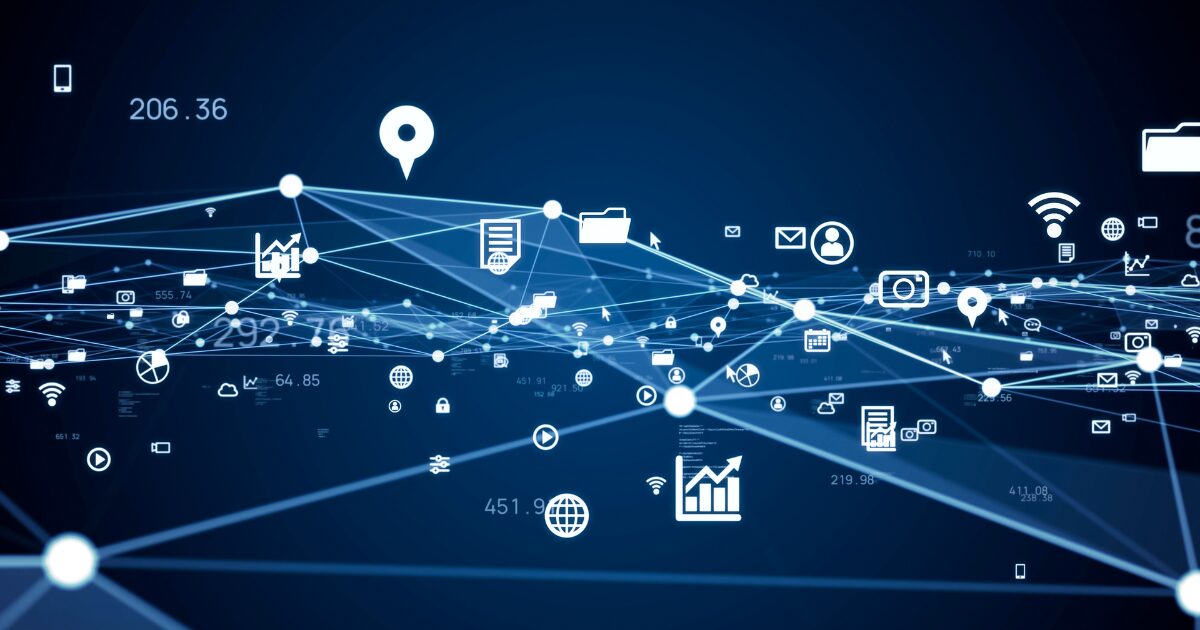
March 19, 2025
AI-Powered Recruitment Screening: End-To-End Project Overview
Author:

CSO & Co-Founder
Reading time:
8 minutes
Addepto’s AI-powered recruitment solution creates a seamless end-to-end screening process by integrating two complementary workflows: the Automated Initial Screening Workflow and the Intelligent Analysis & Decision Support Workflow. The system recognizes that HR remains a fundamentally human process requiring empathy, intuition, and judgment while offering bias-free initial screening to complement human expertise.
Inefficient recruitment processes can lead to significant financial losses. For instance, poor hiring decisions can cost companies between 50% to 200% of an employee’s annual salary due to turnover and rehiring costs. Moreover, ineffective recruitment practices can result in increased administrative costs and lost productivity, impacting business operations and the bottom line.
Project Overview
This integrated system addresses the full recruitment lifecycle from initial application to final selection, eliminating bottlenecks and ensuring consistent evaluation throughout. By connecting automated screening capabilities with intelligent analysis tools, the solution dramatically reduces administrative burden while improving decision quality. The system’s architecture ensures that data flows seamlessly between stages, preventing the information silos that typically plague recruitment processes.
Organizations implementing this solution gain both immediate efficiency improvements and long-term strategic advantages in talent acquisition. The technology stack employs cutting-edge AI capabilities specifically optimized for recruitment contexts, with models trained on successful hiring outcomes rather than generic conversation patterns. This recruitment-specific design ensures that the system evaluates candidates on meaningful parameters that predict job success, not just interview performance.
Unilever has seen 50% reductions in hiring costs through AI adoption.
The solution’s design philosophy prioritizes both scalability for high-volume recruitment periods and precision for specialized roles requiring nuanced evaluation. By handling repetitive tasks while highlighting areas where human judgment adds the most value, the system creates an ideal partnership between technological efficiency and human expertise. This balanced approach benefits organizations through both operational improvements and enhanced candidate quality.
How It Works
Let’s explore how this innovative system works in practice.
Phase 1: Automated Initial Screening Workflow
The process begins when a candidate applies for a position through the company’s applicant tracking system. This triggers the AI agent to initiate contact via automated calls or video interviews.
The AI conducts structured screening interviews using:
- Natural Language Processing (NLP) technology to understand candidate responses
- Speech recognition to transcribe conversations in real-time
- Conversational AI to adapt follow-up questions based on candidate answers
- Sentiment analysis to detect confidence, enthusiasm, and communication style
During this initial phase, the AI agent:
- Verifies basic qualifications and prerequisites
- Asks standardized behavioral and technical questions
- Captures responses and evaluates them against predefined criteria
- Records the entire interaction for further analysis
The system flags exceptional candidates for expedited review while maintaining complete digital documentation of every interaction.
Phase 2: Intelligent Analysis & Decision Support Workflow
Once the automated screening is complete, the second workflow activates:
- Call Recording Analysis employs machine learning algorithms to:
- Extract key qualifications and skills mentioned
- Identify communication patterns and language proficiency
- Measure response quality against role-specific benchmarks
- Flag potential areas for deeper exploration in subsequent interviews
- CRM Integration ensures seamless data management by:
- Automatically creating or updating candidate profiles in the CRM system
- Attaching interview recordings, transcripts, and AI-generated insights
- Organizing candidates into appropriate talent pools based on qualifications
- Triggering status updates and next-step notifications
- Decision Support Dashboard empowers HR teams with:
- Candidate comparison views with standardized evaluation metrics
- Skill gap analysis between requirements and candidate qualifications
- Team collaboration tools for sharing notes and assessments
- Recommended next actions based on candidate performance

The platform’s AI-driven automation accelerates candidate screening, identifying top talent within minutes instead of days. Predictive analytics enhance decision-making by evaluating candidate potential beyond traditional resumes, leading to more precise hires.
Additionally, real-time collaboration tools ensure seamless communication between recruiters, hiring managers, and candidates, fostering a more engaging recruitment experience.
Technological Foundation
At its core, the system employs machine learning models trained specifically on recruitment data to recognize patterns correlated with successful hiring outcomes. These models continuously improve through feedback loops as new hiring data becomes available.
Natural Language Processing (NLP) capabilities enable the system to understand the semantic meaning behind candidate responses rather than simply matching keywords. This contextual comprehension allows for a nuanced evaluation of qualifications, communication style, and problem-solving approaches. The speech-to-text processing engine achieves over 95% accuracy across different accents and technical vocabularies, ensuring reliable data capture during screening interactions.
The cloud infrastructure supporting the solution provides virtually unlimited scalability during high-volume recruitment periods while maintaining consistent performance. The API integration framework connects seamlessly with existing HR systems, CRMs, and communication platforms, minimizing implementation complexity and avoiding data duplication.
Security and compliance features are built into every aspect of the system, with encryption for all candidate data and configurable retention policies that align with recruitment regulations.
Business Impact
By automating initial screening and enriching candidate data with AI-generated insights, organizations dramatically reduce time-to-hire while improving selection quality. The elimination of manual data entry and administrative tasks frees HR professionals to focus on high-value activities like candidate relationship building and strategic workforce planning.
From a candidate perspective, the solution creates a responsive, professional experience that positively reflects on the employer brand. Rather than waiting days or weeks for initial feedback, applicants receive immediate engagement and transparent updates throughout the process. This responsiveness significantly improves application-to-interview conversion rates and reduces candidate dropouts during the screening process.
For hiring managers, the solution provides unprecedented visibility into the candidate pipeline with standardized evaluation metrics that facilitate objective comparison. The ability to screen larger candidate pools without increasing time commitment ensures that promising candidates aren’t overlooked due to volume constraints. By capturing comprehensive data on all interactions, the system also supports continuous improvement of the recruitment process through outcome-based analysis.

Implementation Approach
- The initial foundation phase focuses on integrating with existing CRM systems and configuring AI screening parameters according to organizational hiring priorities. This groundwork ensures that subsequent automation serves business objectives rather than technology-driven imperatives.
- During the pilot phase, the solution is deployed for specific roles with high applicant volume or standardized requirements, providing measurable results while limiting implementation complexity. The expansion phase extends the solution across all open positions with role-specific customization to address varying evaluation criteria.
- Throughout implementation, the solution incorporates feedback from HR professionals, hiring managers, and candidates to optimize performance and user experience.
- The optimization phase establishes continuous improvement mechanisms based on hiring outcome data, creating a feedback loop that enhances screening effectiveness over time. This approach allows organizations to validate ROI at each stage while refining the system based on real-world performance metrics.
The result is a recruitment ecosystem that combines technological efficiency with human expertise to create a sustainable competitive advantage in talent acquisition.
AI-powered solutions in HR: Strategic Benefits
-
Conquering Time Constraints and Manual Workload
Automated Candidate Screening
HR departments struggle with time-consuming manual screening processes that limit their strategic impact. AI solutions automate initial interviews, letting HR professionals focus on complex tasks like in-depth assessments and strategic hiring decisions. Teams can process more candidates without increasing headcount. The consistent approach ensures all candidates receive identical questions, eliminating variability and reducing unconscious bias that infiltrates manual screening.
-
Overcoming Data Overload and Analysis Paralysis
Call Recording Analysis and Insights
HR teams face the challenge of extracting meaningful insights from overwhelming candidate information. AI analyzes call recordings to identify key qualifications and cultural fit indicators. This eliminates manual review while providing structured data that highlights top candidates. By turning subjective impressions into quantifiable metrics, the system supports data-driven decisions that determine recruitment success.
-
Scaling Recruitment Without Scaling Costs
AI Agent for Autonomous Screening
Traditional recruitment methods can’t scale efficiently during high-volume hiring periods. AI agents handle multiple screening calls simultaneously, increasing capacity without increasing staffing costs. The 24/7 operational capability accommodates candidates in different time zones and with varying schedules. This accelerates hiring timelines that directly impact business performance.
-
Mitigating Unconscious Bias in Selection Processes
Objective Evaluation Framework
Unconscious bias undermines diversity efforts and can expose organizations to compliance risks. AI solutions apply consistent criteria to evaluate all candidates equally, reducing the influence of personal preferences during initial screening. This promotes fairness throughout the hiring process, supporting diverse workforces that drive innovation and performance.
-
Enhancing Candidate Experience
Responsive Engagement and Communication
Poor candidate experiences damage employer branding and lose opportunities with top talent. AI technology provides immediate feedback at every stage, eliminating the frustrating “black hole” effect. Personalized interactions based on candidate profiles maintain engagement throughout the process. This approach demonstrates respect for candidates’ time while reflecting well on the organization.
Contact us today to explore how AI technology
can be seamlessly integrated into your HR processes.
Category:





